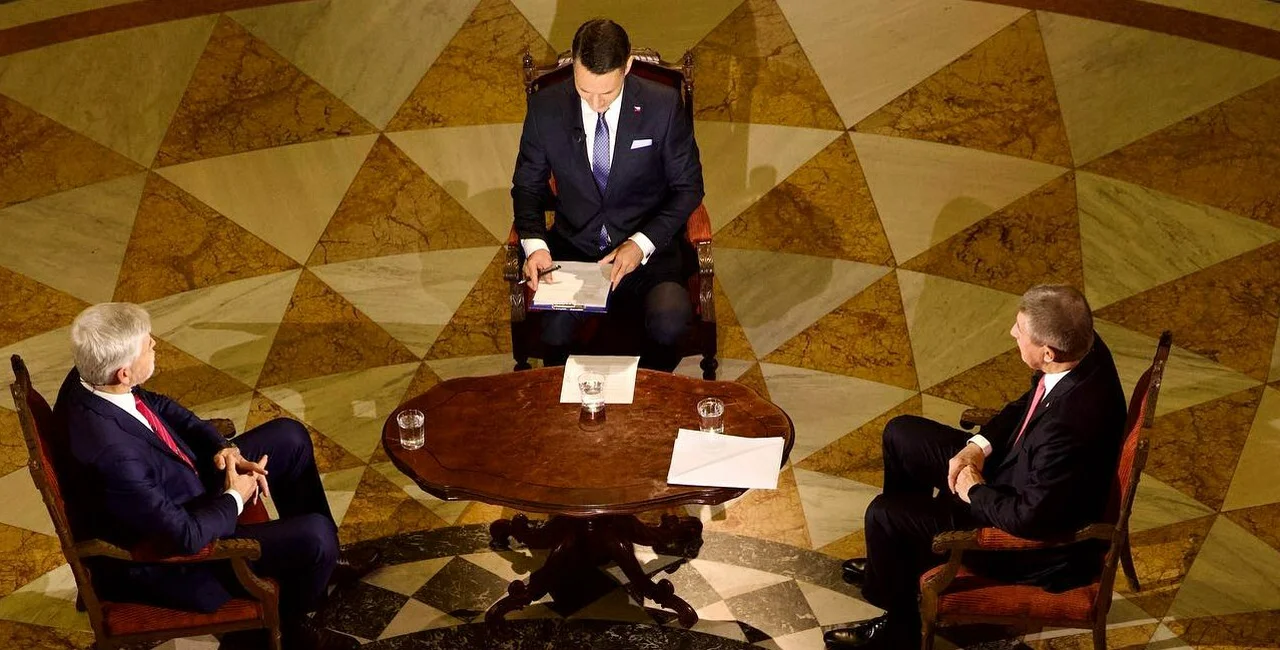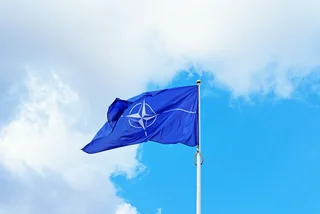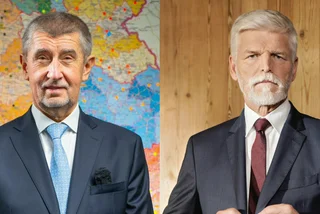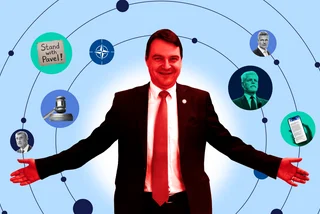Presidential candidate Andrej Babiš said he would "naturally observe" Article 5 of the North Atlantic Treaty on collective defense if a NATO member state was attacked, correcting his words that he would not send Czech troops to help Poland or Baltic countries if they were attacked, ČTK reported.
In a Sunday night election debate on Czech Television (ČT) with his rival, retired general Petr Pavel, when asked whether the Czech Republic should send its troops to an open conflict in the hypothetical case that Poland or the Baltic countries were attacked, Babiš said: "no, certainly no. I want peace, I do not want war. I absolutely would not send our children and the children of our women to a war."
Pavel said in the debate that as a NATO member, the Czech Republic had the obligation to come to the aid of other member countries if attacked.
Czechia and Poland have been NATO members since 1999. Latvia, Estonia, and Lithuania joined NATO in 2004.
After the debate, Babiš corrected his statement on Twitter. "I did not want to answer the hypothetical question of an attack on Poland or the Baltic states. I believe it will not happen and I don't want to admit it at all. It is the responsibility of world politicians to avoid war. But if they really were attacked, I would naturally observe Article 5," he tweeted.
The North Atlantic Treaty says in Article 5 that an armed attack on a member country in Europe and North America will be considered an attack on all of its members. In such a case, other member countries should collectively take action that they consider to be necessary, including the use of armed force.
Article 5 has been used only once so far in NATO history, by the U.S. after the attack on the World Trade Center in New York on Sept. 11, 2001, which was followed by the war in Afghanistan and Iraq.
Pavel, a former chief of staff and ex-chairman of the NATO Military Committee, highlighted Article 5 in the debate on Sunday. "When we are a member of such an organization, we should not only benefit from it within collective security, but we should also give something. There is our obligation to take part in it collectively if someone else is attacked," he said.
In reaction to the television debate, Czech Defense Minister Jana Černochová said she cannot understand Babiš's words about not sending troops.
"We are a member of NATO, which is based on the principle ‘one for all, all for one.’ The government knows this, and most of the society that supports NATO membership knows it. Lawmaker Babiš should also know it because it is a key guarantee of the security of the Czech Republic," Černochová told news server Seznam Zprávy.
Tak vÄÂera jsme mohli v pÅ™ÃÂmém pÃ…â„¢enosu vidÄ›t, jaký je Andrej BabiÅ¡ talentovaný diplomat. UbezpeÄÂit v jeden moment 29 státnÃÂků zemàSeveroatlantické aliance, že se na nÄ› ÄŒeská republika v pÅ™ÃÂpadÄ› jejich napadenàvykaÅ¡le, je opravdu velký diplomatický majstrÅ¡tyk. 🙈 pic.twitter.com/eFxB9u0VX3
— Jana ÄŒernochová (@jana_cernochova) January 23, 2023
On Twitter, she said that in one moment Babiš assured 29 NATO statesmen that the Czech Republic will get rid of them in the event of an attack. She called that "a truly great diplomatic masterpiece."
Czech Member of European Parliament Tomáš Zdechovský on Twitter assured Poland that Babiš's comments did not represent the views of other Czech politicians, and Czechia would come to Poland's defense.
Czech MEP @TomasZdechovsky writing that he wants to reassure Poles that the views of Mr. Babiš do not represent the views of other Czech politicians.
— Visegrád 24 (@visegrad24) January 22, 2023
“If Poland or any of our alliance partners were attacked, the Czech Republic would definitely help them immediately†https://t.co/XyIkO0X7jv
Danuše Nerudová, who came in third in the first round of the election, said on Twitter after the debate that Babiš was evil. "And today we were able to convince ourselves of that again," she tweeted.
Pirate party leader Ivan Bartoš said that in the debate, people could see and hear that Babiš is a direct threat to the country. "He would have everyone around him eaten by Putin, who would then come for us. It destabilizes our position within the free world. A real shame," Bartoš tweeted.
Candidates traded accusations
The debate had several heated exchanges. Babiš said that Pavel had spoken about war all of his life and did not believe in peace. Pavel replied that he sought peace and that Babiš "keeps telling downright lies."
Babiš also said Pavel wanted to send troops to Ukraine and quoted from Pavel's Twitter account. Pavel said he had written about the establishment of a humanitarian corridor there. "You did not understand the content of the tweet," he added.
When it comes to the help to Ukraine, Babiš said there was no reason to lower the comfort of Czech citizens.
Pavel said solidarity was a matter that was foreign to Babiš, and that the war triggered by Russia had caused a partial lowering of citizens' sense of comfort. Due to the war triggered by Russia, Babiš said NATO and the EU helped Ukraine, but the government did not help Czech citizens.
Babiš says Pavel would divide society
Babiš warned that if Pavel became president, society would remain divided. Pavel responded by saying if anyone had divided society recently, it was primarily Babiš. He added that the 3 million people who had voted for the opposition and extra-parliamentary parties would not be defended by anyone if Pavel won.
"If Mr. Pavel wants to do something for this nation, he should give up his bid and leave the place to me as I would represent the 3 million people and let Prime Minister Petr Fiala represent the other," Babiš said. "Then it might happen that the society will no longer be divided," he added.
Babiš warned that the coalition government might dominate all vital government institutions. Pavel responded that if elected, he would not be any puppet of this government.
In the final word, for which the two candidates had 30 seconds, both of them called on the voters to cast their votes for them. The second round of the election takes place on Jan. 27–28.












 Reading time: 4 minutes
Reading time: 4 minutes 




 English
(Advanced)
English
(Advanced)


























